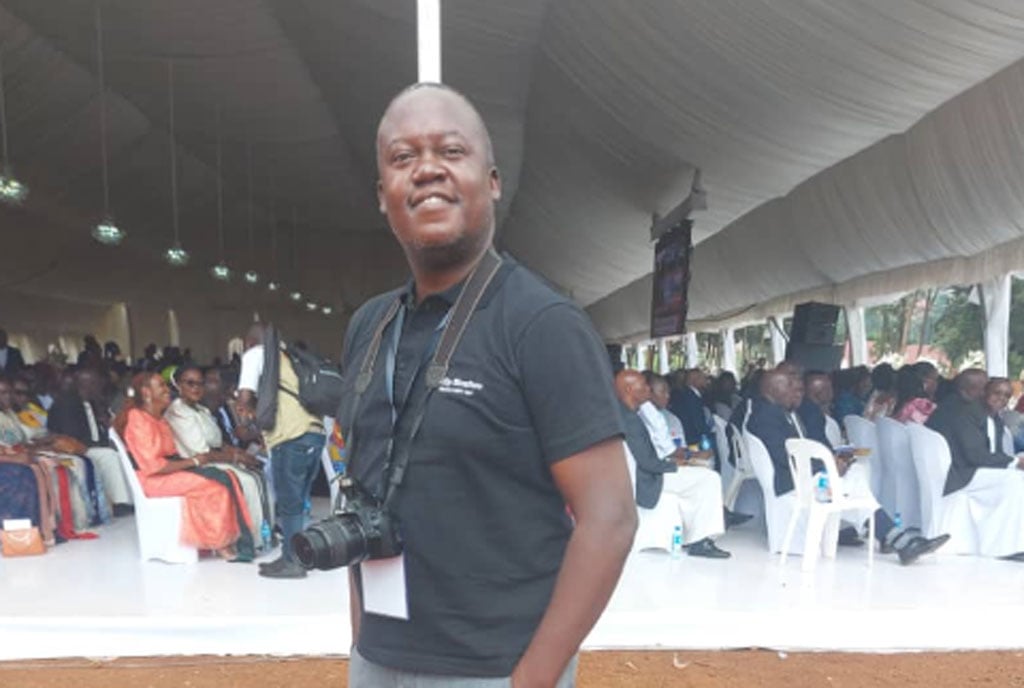Deputy Speaker advocates for mining licences to boost local steel industry

The Deputy Speaker of Parliament, Mr Thomas Tayebwa (center), is guided on a tour of Tembo Steel in Iganga District on October 11, 2024 by the company’s General Manager, Mr Manish Kalla. PHOTO | PHILIP WAFULA
What you need to know:
- During his visit to Tembo Steel, Mr Tayebwa aimed to better understand the challenges faced by investors and to equip Parliament, as decision-makers, with insights to support the Executive on value addition and other pertinent issues.
The Deputy Speaker of Parliament, Mr Thomas Tayebwa, is advocating for a government policy that would grant mining licences to all iron ore and steel manufacturers. His remarks came during a two-day tour of investors in Eastern Uganda, beginning at Tembo Steels in Iganga District on Friday and concluding at Mbale Industrial Park on Saturday.
“We should ensure that mining licences are available for all steel manufacturers to create a level playing field,” Mr Tayebwa stated during a media briefing on Friday. He emphasised that providing these licences would eliminate the justification for importing raw materials. “We will ask, ‘We provided you with a raw material and a licence; why are you still importing these raw materials that are 95 percent finished products?”
He acknowledged the significant carbon footprint associated with factories like Tembo Steel but noted that the facility operates in “a very green area.” Mr Tayebwa promised to engage with the National Environment Management Authority (NEMA) to assess the carbon emissions from companies like Tembo Steel and explore ways to mitigate them.
During his visit to Tembo Steel, Mr Tayebwa aimed to better understand the challenges faced by investors and to equip Parliament, as decision-makers, with insights to support the Executive on value addition and other pertinent issues.
“As the leadership of Parliament, we are committed to pro-business interventions that align with President Museveni’s vision. The only way to do this is to engage directly with the field and witness operations firsthand,” he said. He also expressed support for the President’s railway initiative, which aims to reduce transportation costs for raw materials and exports.
Mr Tayebwa highlighted that Tembo Steel consumes over 40 megawatts of power and incurs electricity costs of approximately Shs 4.2 billion monthly. He noted that the company’s energy management practices are beneficial, as their products are entirely Ugandan-made.
“I come from Kabale District where the iron ore is coming from; it would be very painful to see Uganda, which has the purest iron ore in the world, have it exported and then re-imported in the form of raw materials,” Mr Tayebwa noted.
Rewarding compliant firms
Mr Tayebwa proposed a policy that would reward companies using Ugandan resources by implementing a percentage fee while imposing import duties on those still reliant on imports. “For many unfinished raw materials, the value addition is only five percent. It is very critical as a country that once we have such a policy of processing our minerals, then we reward those who are complying so that we can attract others,” he stated.
Minimum wage considerations
He addressed the issue of minimum wage, noting that the government has intentionally refrained from establishing one. “We believe that if these investors are making profits, they should ensure fair compensation for their workers,” he explained.
He added that skills development in local industries has reduced the reliance on expatriates, leading to better pay for local workers.
Mr Kalla from Tembo Steel shared that the company uses locally sourced iron ore from Muko Sub-county in Rubanda District to produce high-quality steel, stating, “With the complete raw materials available in Kabale, coal from Tanzania, and dynamite from Karamoja, we should be able to manufacture everything locally, as President Museveni has urged.”
He expressed gratitude for the commitment to the “Made in Uganda” initiative, emphasizing that their plant is entirely fabricated in Uganda without any imports. “We are not just investors; we are Ugandans who have been here for over 25 years,” Mr Kalla concluded.





